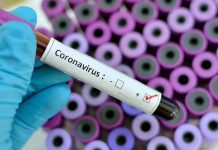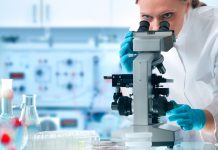Here’s some good news for people with Parkinson’s disease!
According to a groundbreaking clinical trials program, which targeted an experimental treatment directly to the brain, offers hope that the damaged cells can be restored in Parkinson’s disease. The study examined whether improving the levels of Glial Cell Line Derived Neurotrophic Factor (GDNF), a naturally-occurring growth factor, in patients with Parkinson’s disease can renew dying dopamine brain cells and reverse the condition.
The results of the study are published in the Journal of Parkinson’s Disease.
With support from The Cure Parkinson’s Trust and the North Bristol NHS Trust, Parkinson’s UK funded the study.
Forty-one patients took part in the study to assess the safety of the experimental treatment. Half of the participants were randomly assigned to receive monthly GDNF infusions and the other half on placebo infusions. After the initial nine months, the open-label extension study took place, which determined the safety and efficacy of GDNF infusion.
During the clinical trials, a specially designed delivery system was implanted with the help of robot-assisted neurosurgery, which allowed high flow rate infusions administered every four weeks and enabled so-called Convection Enhanced Delivery (CED) of the drug. Four tubes were placed with great caution into each patient’s brain, allowing GDNF to be infused directly to the affected regions through a skull-mounted transcutaneous port behind the ear.
Over 1000 brain infusions were done, once every four weeks for 18 months to study this experimental therapy. The study has demonstrated that there was a high compliance rate (99.1%) in participants and the therapy is clinically tolerable and feasible.
After nine months, the participants underwent PET scans. The group who received GDNF infusions showed a 100% improvement in one of the key areas of the brain affected by Parkinson’s disease, while there was no change in those who received placebo. Researchers said this treatment can restore the damaged brain cells, which can be helpful in reversing Parkinsonism.
After 18 months, when all participants received GDNF, they showed significant improvements in symptoms. The team of researchers said that the GDNF infusion was safe when administered over this period of time. The integrated results of the study suggest that GDNF infusion is feasible and tolerable. However, further testing of GDNF on a larger scale and on a larger number of patients to determine whether it is indeed a neuro-restorative therapy for Parkinson’s disease.























